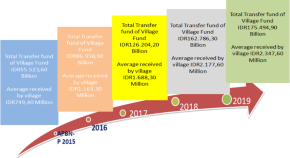Collection
Addressing Poverty in Post-Pandemic Society
- Submission status
- Open
- Open for submission from
- 10 May 2023
- Submission deadline
- 10 May 2024
• Understanding the poverty (new dimension, patterns etc.) in post-COVID Society
• Impact of COVID-19 pandemic on poverty
• Approaches, measures of poverty
• Poverty and Marginalized Community
• Poverty and Post-pandemic policies
• Poverty and inequality
• Multidimensional Poverty analysis for the vulnerable populations
• Poverty reduction strategy
• Social welfare policy in the context of poverty
• Poverty alleviation programs and policies in context of pandemic
• Case study related to poverty and poverty reduction strategy
• Sustainable Development Goals and Poverty
• Challenges for achieving Sustainable Development Goals in post-pandemic society
Keywords: Redevelopment, Poverty, Poverty Reduction Strategy, Inequality, COVID-19 Pandemic, Globalization, Multi-Dimensional Poverty, Social Welfare, Vulnerability
Editors
-
Rajendra Baikady
Dr. Rajendra Baikady, Assistant Professor, Central University of Kerala, India; Senior Research Associate, University of Johannesburg, South Africa; Faculty Fellow, York University, Canada He is also associated with International Socioeconomic Laboratory, Harvard University as a Principal Investigator (Summer Research Fellowship). He has completed Post-Doctoral research in Taiwan, China, Israel and South Africa. His research interests are in international social work, social change, social problems, social welfare, social justice, human rights, poverty, critical social work, social policy and globalization.
-
Koustab Majumdar
Dr. Koustab Majumdar, Ramakrishna Mission Vivekananda Educational and Research Institute, India He is a Visiting Scholar at National Yang Ming Chiao Tung University. He is awarded with Taiwan Fellowship by Ministry of Foreign Affairs to conduct post-doctoral research on Comparative Indigenous Social Welfare Policy at ICSS_NYCU. He received tuition fee scholarship (2019) to attend Chula Right Livelihood Summer School, Thailand. His research interests include agrarian change, environmental education, social work education, international social work, social welfare policies, rural and tribal livelihood, poverty & participatory research.
-
Michal Plaček
Dr. Michal Plaček, Associate Professor, Charles University, Czech Republic; global research affiliate, Sustainable Purchasing Research Initiative, Arizona State University, USA His research is focused on public procurement, corruption, and efficiency. He has publications in high‐ranking journals such as Public Management Review, Waste Management, Public Money and Management, Journal of Comparative Policy Analysis, Journal of Public Procurement, and Public Works Policy and Management. He won the award for the best comparative conference paper from the Journal of Comparative Policy Analysis in 2017.
Articles (3 in this collection)
-
-
Silenced voices and strained livelihoods: challenges faced by Kashmiri women entrepreneurs after article 370 abrogation
Authors
- Abdul Mohsin
- Sabahat Muzaffar
- Content type: Research
- Open Access
- Published: 06 February 2024
- Article: 7
-
Village funds and poverty reduction in Indonesia: new policy insight
Authors (first, second and last of 4)
- Choirul Anam
- Michal Plaček
- Cristina Del Campo
- Content type: Brief Communication
- Open Access
- Published: 23 October 2023
- Article: 14





